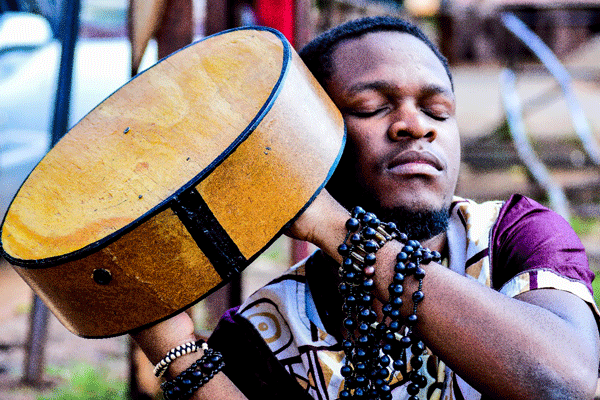
Chitungwiza-born hip-hop artist Marshal Muchenje — who goes by the stage name Sharky is enjoying a good year following the recent launch of his second album Soko Matemai.
By Kudzayi Zvinavashe

The album was launched last month at a well-attended event at MotoRepublik, a creative hub in Harare. Such a launch attended by the genre’s heavy weights may only be an inspiration to many, especially other hip-hop starlets.
While that seems like a major highlight in his three-year career, Sharky’s biggest highlight was when he performed in Senegal.
He told The Standard Style that the album launch was a major highlight on its own.
“But the most epic moment in my career was when I performed outside Zimbabwe for the first time, at one of the biggest festivals in Africa — the Festa2H festival in Senegal. My trip to the west African nation was made possible by Shoko Festival, which runs an exchange programme with them,” he said.
Sharky’s unique sound merges traditional instruments like mbira and hosho with modern live instruments like the guitar and keyboard.
Laced with his lyrical prowess that tackles social issues like child abuse and unemployment, his music is passion-driven.
- Chamisa under fire over US$120K donation
- Mavhunga puts DeMbare into Chibuku quarterfinals
- Pension funds bet on Cabora Bassa oilfields
- Councils defy govt fire tender directive
Keep Reading
“Most of my music is driven by emotion and passion. It could be joy, sadness, excitement, sympathy, that drives most of my creation process,” he said.
His latest offering, titled after his totem Soko, is a true reflection of Sharky’s personal journey and reflection of Zimbabwe.
In the song titled Mushando he says, “No food for the lazy man… Ndirimuranda wemari handichina nguva yeshamwari, mwedzi uchitanga mumwe uchipera ndakangomirira salary…Apo ivo mashefu vagere bho votiti tinochema nhando isusu [No food for the lazy man… I’m a servant to money; I don’t have time for friends, from beginning of the month to the end, still waiting for a salary… yet the bigwigs say we are complaining needlessly.]
Taita Seiko is another powerful song where he quizzes the Creator, asking what sin humans have committed to deserve to be forsaken. Other hip-hop gurus in Zimbabwe have tried to merge traditional instruments, but have failed dismally.
Although airplay has been lukewarm, Sharky remains hopeful that his music will take off eventually. The album was number one in Zimbabwe Albums on iTunes, a few days after its release.
The 23-year-old said in five years time he would want to be one of the biggest acts in the country.
“I would like to be a brand that is as big as the artists in sungura and even dancehall,” he said.
“I would love to achieve my music dream before I turn 30. Right now I am 23, so there is still time.”
Sharky said local music, particularly hip-hop, needed a very distinct sound that would identify it with Zimbabwe.
“In west Africa, they have their own unique sound, Nigeria to be precise. You can tell at first listen that this is a Nigerian song. I think we need to be comfortable in our own sound in order to compete on the international scene,” he said.
The youthful crooner has shared the stage with Tehn Diamond, Noble Stylz, Killer T, Ba Shupi and Dhadza D. Sharky’s music might prove to be the recipe for changing the status quo between Zimdancehall and Zimhip-hop genres.











